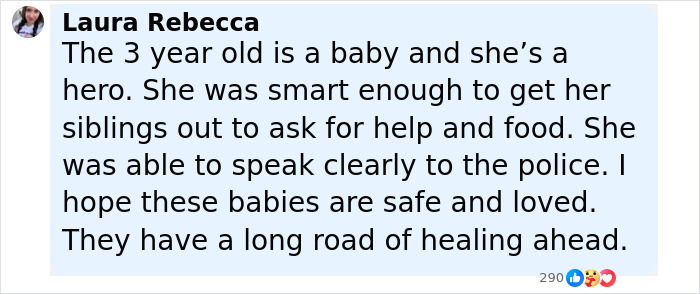A mother and father were found lifeless in Houston, Texas, after their three children led police to their home.
On Monday (August 18), Houston Police responded to a welfare check at a residence on Meadowglen Lane, where they found three children, ages 1, 2, and 3, sitting outside.
Neighbors were reportedly caring for the children at the time.
“[The children] were out in an apartment complex parking lot asking for food,” Houston Police Lt. Larry Crowson said at a press conference, as per KHOU 11.
Police in Houston discovered a man and a woman deceased inside their home after their children directed officers to the apartment

Image credits: Daniel von Appen/Unsplash (Not the actual photo)
“Officers responded to the location. They asked where their parents were and [the children] said they were in the apartment deceased.”
The deceased man and woman were reportedly in their mid-20s. It is believed that the man shot his wife before taking his own life with the same weapon, about 24 hours before their bodies were discovered.

A neighbor, Deborah McMillan, told ABC 13 Eyewitness News that the children were visibly “hungry and thirsty.”
“The oldest one is who hurts me the most because she was vivid in details of what she had witnessed with her parents,” she said.
Neighbors cared for the children, ages 1, 2, and 3, before authorities arrived
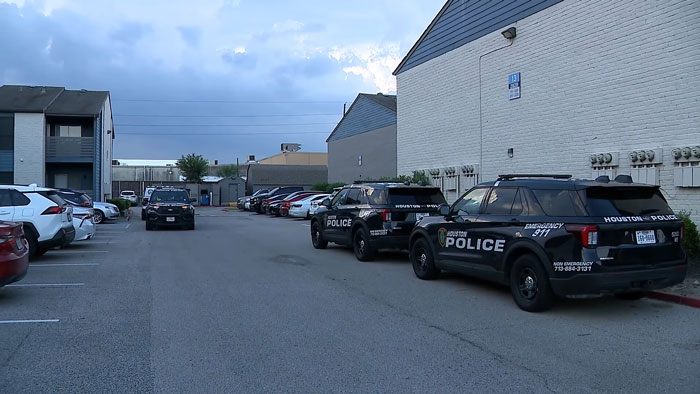
According to McMillan, the woman had tried to leave the man before the shooting, but ultimately stayed with him to prioritize their children’s happiness.
“She came over a few times, asking to use the phone. I would talk to her, try to tell her, ‘Hey, it’s not worth it,'” the neighbor described.
“Her main thing is that she didn’t want to leave because of the kids.”
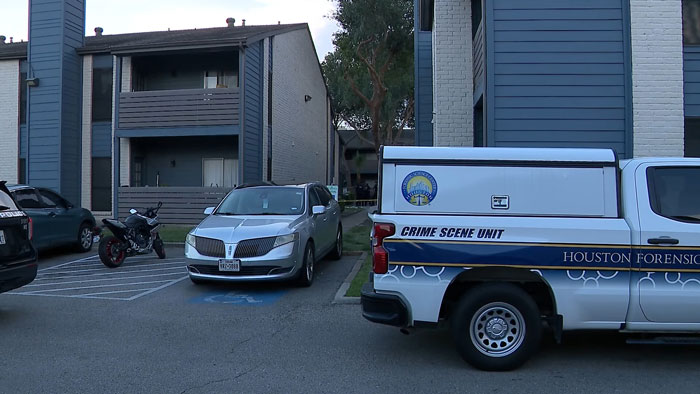
The three children were reportedly found uninjured and were sent to their grandmother’s home following the incident. A police investigation is underway.
McMillan, a domestic violence survivor, said she was devastated, but not surprised, when police arrived at the apartment across from hers, as per ABC 13.
“Don’t think this is your only way to live, to stay in a situation like this. It’s not, believe me,” she stressed. “I survived. I’m out. I’m healthy, living, loving.”
Authorities believe the man fatally shot his wife before taking his own life
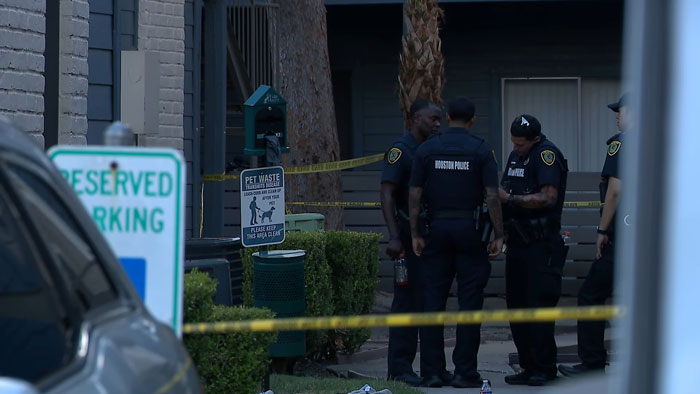
McMillan encouraged women in toxic or ab*sive relationships to take action and be confident that they will lead a better quality of life without their partner, despite their insecurities regarding what that life will look like.
“Get away. That is my main thing. Get away. I know it’s hard. It’s scary,” she said.
“They put it in your mind, ‘Hey, you’re worth nothing.’ You’re not going to be nothing.’ But you are something. You are loved.”
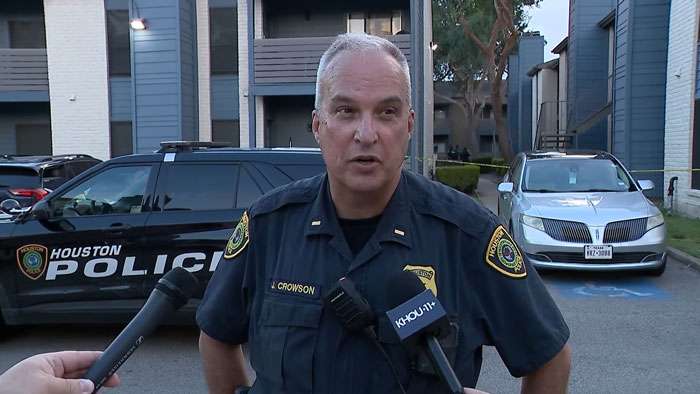
According to data from the Houston Area Women’s Center, almost one in four homicides in Houston since January have been linked to domestic violence.
In 72% of domestic violence cases in Texas, aggressors took their victim’s lives in their homes.
“It’s important for our community to understand that the same victims that you’re seeing in the news could be your sister, it could be a friend,” said Jacklyn Guerra, the director of Legal Advocacy Services at the Houston Area Women’s Center.
Guerrera said most crimes occur when the victim is trying to leave their partner. This decision would mean “taking away the power and control” from them, she said, which makes the aggressor’s violence escalate.
According to United Nations Women, only 40% of women seek help of any sort after experiencing violence.
Experts recommend that victims call a women’s shelter or a domestic violence hotline for support and advice when their partner is away or from a family member’s or friend’s home.
They are also advised to make a safety plan and pack an emergency bag with essentials such as clothes, money, and a phone charger, storing it in a safe space so that they are ready to leave if they feel threatened by their partner. It is equally important to decide in advance where they will go and how they will get there.
A neighbor said the mother had previously tried to leave the relationship but stayed for the children’s sake

You might be experiencing domestic violence if your partner: insults you or puts you down, hits you or threatens you with physical violence, often acts possessive, or tracks where you go, what you do online, or who you talk to.
Other signs include when they stop you from seeing family or friends, get angry when drinking, force you to sleep with them, blame you for problems in the relationship or their violent behavior, or tell you that you deserve it.
In many cases, the cycle includes an apology from the aggressor and a promise not to repeat the behavior, the Mayo Clinic notes.
If you or someone you know is experiencing domestic violence, help is available. Call the National Domestic Violence Hotline at 800-799-SAFE (800-799-7233).
“They have a long road of healing ahead,” one user expressed, while others hoped the children were in a safer environment











